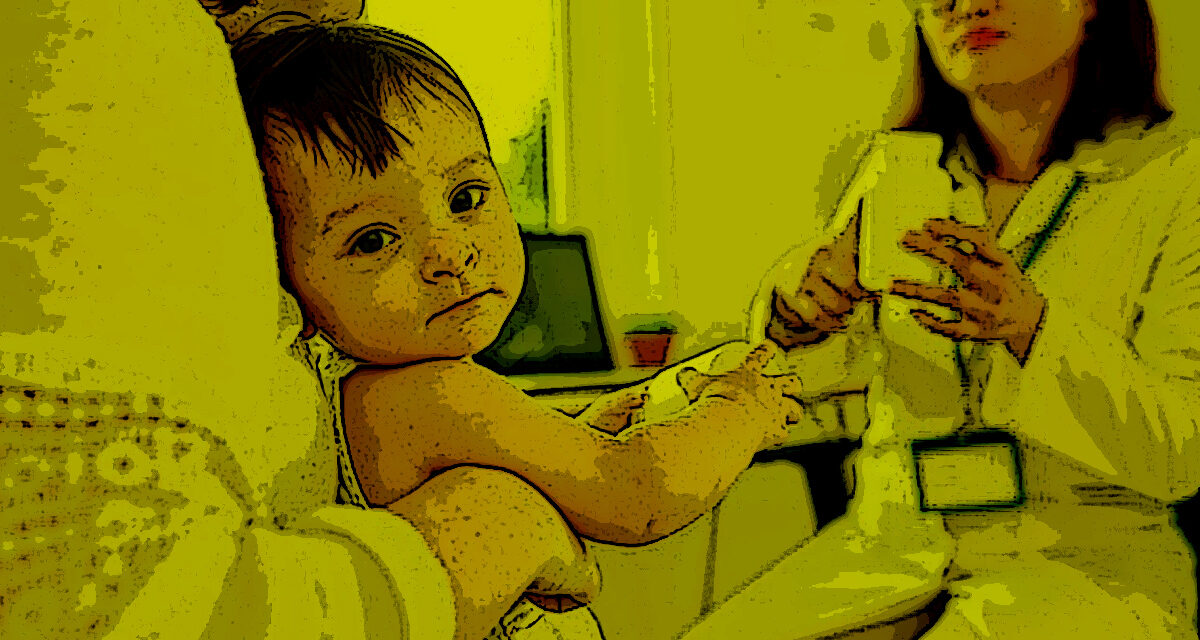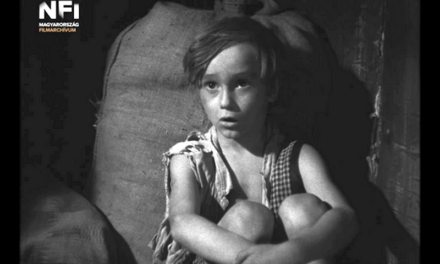Well, who will be, who can become a nurse? And do custodians love children? Jr. György Tóth's interview.
The nanny service is characterized by selfless, sacrificial profession, love of family and children. This work requires a sense of professionalism from them, which is also special compared to most helping professions. But who will be, who can become a guardian? We received the answer from Marianna Várfalvi, president of the Professional Association of Hungarian Defensewomen (MVSZSZ).
***
As for the required education, after graduation, applicants can participate in a 4-year health college (BsC) course as part of higher education, and there is already a university-level nursing course (MsC) and a scientific degree can also be obtained.
There is, however, a no less important part of aptitude, and that is the human factor.
Being a guardian means a profession, a commitment to the protection of human life, helping mothers and parents, protecting the health of children, and the institution of the family. Our profession is for life. Anyone who gets a taste of it and loves it will retire from here, and many are even able to serve even after retirement, because someone who lives in a small village and has taken care of generations will always be stopped on the street or knocked on the door.
***
Many people think that the work of nannies only means child care, although they are responsible for the whole family, from the pregnant mother to the baby, siblings, parents, and even grandparents. This also means that they have to take care not only of physical but also of mental health, so they have to be aware of mental processes and crisis situations in families and in certain people, in order to recognize and deal with more problematic situations, or to help them get advice for appropriate additional help , those in need of treatment. Who helps and manages the nurses' daily work?
A couple of years ago, the nurse mentor system was established at the county hospitals and within the framework of three rural universities, who help the nurses working in the field and in the schools in the performance of their duties, in organizing new tasks, and in professional matters. They help beginners or those returning to the field after several years, as young people can learn the methods of practicing the profession from experienced colleagues, learn how to deal with problematic cases, and interpret legislation.
Such a professional mentoring system exists only in the case of nurses' care, and it is necessary, since nurses encounter many health and life situations in which the involvement of other professions or other measures is necessary.
They guide, support, and provide information to working nurses both in their professional work and in everyday practical issues or new regulations, and if someone has a question or problem, they can ask for advice from the mentor. But they also perform other employer tasks.
It is not an exaggeration to say that the guardian almost becomes a family member for a while, since someone can only provide useful guidance if they know their clients well.
This trusting presence is really necessary, because only by knowing the family relationships and living conditions can we ensure that the new family member is a happy, healthy child. We also need to know about the possible harmful passions of family members, we need to see if the little things are taken care of properly, if the family does not suffer from a need, because only then can we provide information and help for the individual and the family, make them the most suitable decisions and changes . This also means that we visit the family not once, but regularly, at specific ages and life situations.
During the work of the nurses, regular contact is also possible in the family, community programs and with the counselor.
We know that Hungarians are the smartest people in the world and don't like people interfering in their lives. Do they have such problems?
Last year, the Mária Kopp Institute for Population and Families, better known as KINCS, conducted a survey on the public's opinion of the nanny service.
We got very, very good results, 4.5, 4.8 on a five-point scale. I think we can be proud of that.
In any case, the acceptance of midwives has strengthened even more since the law on basic health care stipulates that citizens raising small children have an obligation to cooperate with midwives and family doctors. Knowing the already mentioned detailed conditions and health status, and taking into account the questions and needs of the family, the nurse can plan and implement the care. And this relationship is two-way, we custodians build on the cooperation of parents and family members, we support and develop them in this.
We strive for a good relationship, live, active and honest dialogue. There are aspects and care methods in the care process that can only be established with a personal home visit.
Visits are usually arranged with the family, taking into account their schedule. At the same time, we also use other forms of contact thanks to the tools of modern technology. Especially if this speeds up requests and questions that can be resolved even without a personal meeting.
On the other hand, there are nurse consultation rooms that are easily accessible for families, and these are provided by local governments. This has been the case for almost 110 years. You can come there, there are counseling appointments, the mother can come with the child, or the expectant mother with her partner, or a couple planning to have a child, in the counselor's office we can also carry out screening tests for them in addition to serious professional equipment, or give them the health advice they need. right now.
I know that the nurse's organization is not a political institution, so I ask as a private person, what is your opinion about what is going on in the United States? I am talking about abortion that can be performed up to the moment of birth, that is, in fact, infanticide.
One of the main objectives of the nanny service when it was founded was to promote the numerical growth of the nation. The second is to reduce infant mortality and maternal mortality, and the third is to fight against ignorance and superstition. Therefore, we perform our service entirely for the protection of life and health, this is our profession, and I personally say the same.
Therefore, I cannot even accept abortion allowed until the moment of birth. The protection of life begins at conception, and this is laid down in the Basic Law of Hungary and pivotal legislation. This is not a political but a moral issue.
Hungary is a good example of the fact that the Family Protection Service was established in 1992, in which specially trained nurses work for mothers and couples in crisis situations. One of their main tasks is how to help a woman in a crisis situation to bear the fetus and give birth to her child. In this country, in this culture, a woman should not think about ending a healthy life at the last moment, while she could also give this baby up for adoption and help it into a loving family environment where its life and prosperity will be ensured.
A person cannot exist without love, and it is very difficult for those young people who have not been given a loving family environment to cope with life.
A child's happiness does not primarily depend on food and clothing brands, but on growing up in love, physical, mental and social security, in an accepting and supportive environment. To take this away from a child, what's more, to take his own life, we cannot support or accept it, we offer a variety of help for the decision to accept life.
Fortunately, things have not deteriorated so far in Hungary, but life protection rules are still under attack. Pro-abortionists angrily attacked the requirement that before an abortion it is mandatory to listen to the fetus's heartbeat, watch the ultrasound recording and take part in counseling.
The implementation of the law on the protection of fetal life stipulates that a woman in a crisis situation - preferably with her partner - must attend two counseling sessions. First, we will explain the options for expectant mothers, the various types of support and help available, the possibility and conditions of adoption. When it comes to financial problems, expectant mothers should know what a huge family support background supports childbearing.
We help in gathering the network of contacts and the helping civil, church and charitable organizations close to the woman in trouble, or beyond, as there are homes where mothers fleeing from family or abusive relationships receive protection and security.
Only the second time, if you maintain your decision, will the issues related to abortion be discussed. I think this is very important and it should also be known that when this law was passed, the number of abortions was very high, 80-90 thousand abortions took place every year, now it is 22 thousand. This is a lot, but with so many years of hard work, we were able to achieve a lot. Of course, this still needs to be worked on.
In addition to the above, I would also make it mandatory to watch the film Unexpected Life
What is still our big task in this regard is prevention and information. The main mission of the nurse service is to prevent trouble. Family protection nurses, school nurses, and regional health nurses visit schools and their task is to prepare young people for responsible partner selection and responsible sexual life, and to ensure that every student, every child, and every adult knows that in this situation, how to avoid unexpected conceptions.
Respect between the two sexes, living together, choosing a partner is a responsible decision and commitment, which is not easy today.
Prevention is also important so that young people and those who seek advice can access knowledge and methods related to family planning, the protection of human life, and lifestyles that support or prevent childbearing in time and from reliable sources. Such sessions can be held in midwifery counselors, schools, camps, community programs, and in counselors created for this purpose by Government Offices.
The time of choosing a partner, getting married, and having children is postponed. And if the first child comes later, there may be fewer births than originally planned.
Finally, a very silly question: do the nurses love children?
The new life developing inside the womb, children, adults, old people, everyone. Even teenagers, although some of them are quite difficult to understand and love. However, we have a colleague who voluntarily deals with this age group most willingly.
Caregivers' job is to convey love and convey its value.
A short film made in cooperation with the Association of Hungarian Guardian Women and the Foundation for Guardian Women, New Parents and Newborns for the upcoming 110th anniversary of the existence of the nanny service and the 10th anniversary of the declaration of the Hungarian Ministry of Health next year, in which they talked about their work and their profession.
The film presented at the Kopp Mária Institute can be viewed here:
Featured image: Civilians. Info graphics













